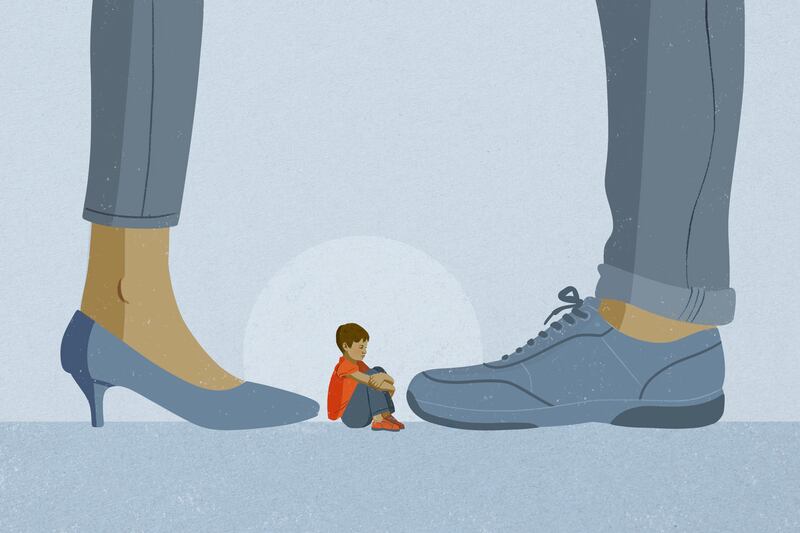A mother in Jackson, Mississippi, was recently arrested and charged with child neglect after taking a toddler wearing only a diaper to Walmart in freezing temperatures.
Other shoppers confronted Kambria Darby while her child was visibly shivering and she was tossing frozen food in the cart with him. News reports said she cursed at them and made a rude gesture. The police were eventually called and the baby was released into the custody of a relative.
Later, in a Facebook post, Darby likened her travails to those of Jesus and insisted that she can show pictures of meals she has cooked for her children as proof of her fitness as a mother.
If that response seems a little odd, well, one relative told the New York Post, “I’m not saying there are underlying mental health issues in her case but you need to find out her story.” She went on to defend Darby, saying, “I don’t condone what was done and it was right to be reported but we don’t know both sides of the story. Sometimes kids can be difficult, not wanting to put their clothes on, or taking them off and maybe she was in a rush to pick up some things.”
While of course there is always more to a story, the case reminds us that when children are neglected, there are usually issues involved other than poverty. Unfortunately, there is an increasingly popular myth that neglect is just another word for poverty and if parents had the proper material resources, they and their children would be just fine.
In a 2022 interview on “CBS Sunday Morning,” University of Pennsylvania law professor Dorothy Roberts explained the reasons she believed the child welfare system should be abolished. Among other things, she said that child neglect is a problem that could be solved with financial support rather than investigations by child protection. “Neglect is defined by most states as parents failing to provide the resources that children need, like clothing or food or secure housing. And those are usually caused because parents simply can’t afford them.”
Alan Dettlaff, a professor of social work at the University of Houston and one of the architects of the movement to abolish the system, told Nonprofit Quarterly: “In reality, more than 70% of children in foster care today are in foster care because of what the system calls neglect, which is largely related to poverty issues. Less than 15% of children in foster care are in foster care because of physical or sexual harm.” He went on to say, “Most people think that the child welfare system is saving children who need to be saved.” But, he claims, it’s not.
The example most often used by advocates of this position is a teacher reporting a child who has shown up to school without a winter coat during very cold weather. They say that the teacher should not call child protective services about the problem, but instead try to help the family access financial resources.
Of course, that seems reasonable. And if this only happens once or twice and is not accompanied by any other problems — like a child who says they don’t have enough food at home — why not? The problem with this assessment, however, is that we have a social safety net in this country and it’s not hard to access winter clothing or food for children. Parents living in poverty can receive housing vouchers, food stamps and other financial assistance to pay for items they and their children need. And there is plenty of private support as well. A couple of years ago I went to my local Salvation Army and they told me they had too many clothing donations and were not taking any more. The idea that this mother, who was herself dressed appropriately for the weather, could not afford a coat or warm clothing for her child is patently absurd.
Darby’s case is also typical of neglect in another way — her child is very young. Most neglect cases (and most neglect fatalities) occur in children under the age of 3. These children (as any parent knows) need a lot of supervision. They cannot feed or clothe themselves or get medical attention without an adult’s help. And if something goes wrong with their parent, they have no ability to contact other adults for help.
So yes, even though this toddler has not (so far as we know) experienced physical or sexual abuse, the fact that his mother does not seem in her right mind means the risk to her child is real. And neither handing her cash nor hearing the “other side of the story” will change that.
Naomi Schaefer Riley is a senior fellow at the American Enterprise Institute, a Deseret News contributor and the author of “No Way to Treat a Child: How the Foster Care System, Family Courts, and Racial Activists Are Wrecking Young Lives,” among other books.
.


